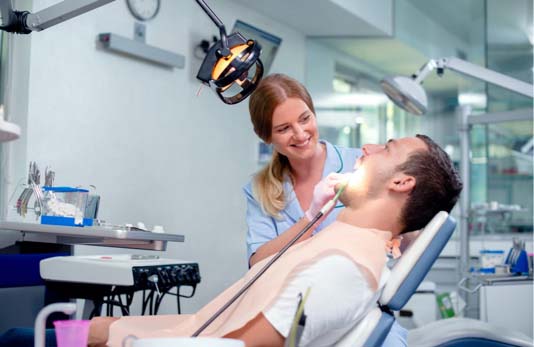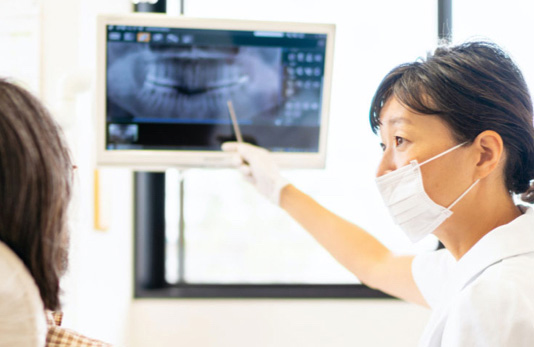How to recover from oral surgery

You may experience discomfort after oral surgery. Here are some simple steps you can take to reduce the pain and help your mouth recover quickly.
Do's
- Take it easy. Rest at home, avoiding physical activity. Keep your head propped up with pillows to reduce swelling and bleeding.
- Use ice. Apply ice packs to your face for 15 minutes on and then 15 minutes off to keep swelling down.
- Eat soft foods. Stick to a liquid or soft food diet for the few days after surgery. Opt for soups, yogurts, fruit milkshakes, smoothies and mashed potatoes.
- Choose foods rich in vitamin A and C. These vitamins support the healing process. Load up on foods like eggs, fish, sweet potatoes and stewed carrots.
- Take prescribed antibiotics. If your dentist or oral surgeon prescribes you antibiotics, finish the course as directed.
- Keep your mouth clean. After 24 hours have passed, rinse gently with warm salt water (one teaspoon of salt in a glass of warm water) four times a day. Be sure to rinse after every meal and snack, making sure that the water removes any bits of food around the surgical area. Your dentist may also recommend a chlorhexidine rinse to kill bacteria.
- Brush carefully. Don’t brush or floss the teeth in the surgical area until fully healed, but do continue to brush and floss the rest of your mouth.
Don'ts
- Don’t overexert yourself. Avoid exercise for two to three days after surgery. Increased blood flow can dislodge the blood clots that form as your mouth heals.
- Don’t eat hot foods and drinks. Avoid hot food or drinks until the local anesthesia wears off. Since your mouth is numb, you may have difficulty gauging your food’s temperature and burn yourself.
- Don’t eat hard or crunchy foods. For six to eight weeks, avoid biting on items like carrots or popcorn in the area of the surgery.
- Don’t smoke or drink alcohol. Smoking and alcohol can interfere with the healing process.
Follow your dentist’s after-care instructions to heal quickly without complication. However, you should contact your dentist immediately if you experience any of the following:
- Throbbing pain that doesn’t respond to medication
- Bleeding that continues even when you apply pressure
- A fever that lasts for more than 24 hours after surgery
- Pus, which can indicate an infection
- Trouble swallowing or breathing
Last updated February 4, 2022
Related articles:
The oral health information on this website is intended for educational purposes only. Always consult a licensed dentist or other qualified health care professional for any questions concerning your oral health.


